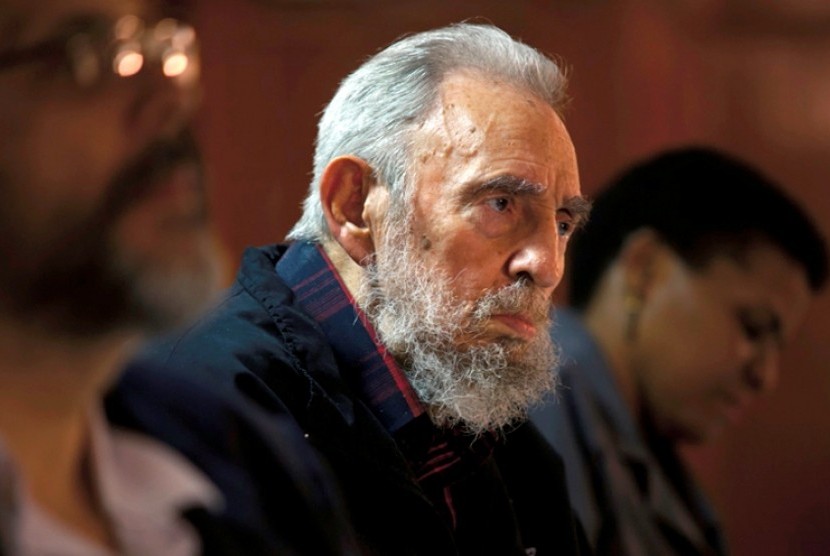REPUBLIKA.CO.ID, BEIJING -- Former Cuban leader Fidel Castro is this year's winner of China's Confucius Peace Prize, portrayed by organizers as an alternative to the Nobel Prize, which they see as biased against China.
The committee that sponsors the prize praised 88-year-old Castro for "contributions to peace" — in stark contrast to the view in the West of Castro as a dictator who ran an oppressive one-party state for nearly five decades while seeking to export communist revolution.
"As Cuba's leader, when managing international relations, especially relations with the US, he did not use military force or violence to resolve controversies and disputes," prize co-founder Liu Zhiqin was quoted as saying by the official newspaper Global Times. Castro also made "important contributions on eliminating nuclear war after retirement," Liu said.
In line with past awardees, the ailing Castro did not come to Beijing to pick up his award and it wasn't clear whether he was aware of the honor. The prize, in the form of a gold-colored statuette and certificate, was instead handed to a Cuban foreign student representative at a ceremony Tuesday at a Beijing hotel.
That came one day ahead of the awarding of the Nobel Peace Prize to 17-year-old Malala Yousafzai, who had been shot in the head by the Taliban two years ago for speaking out on education, and Kailash Satyarthi of India, who has campaigned for children's rights.
The Confucius Prize sponsors are academics and private businesspeople who say they are independent of China's government. Named for ancient China's most famous sage, the prize was launched in 2010 after the Nobel Peace Prize was awarded to imprisoned Chinese dissident writer Liu Xiaobo.
China's government furiously condemned Liu's award but has distanced itself from the Confucius prize. Foreign Ministry spokesman Hong Lei on Thursday said the award was "set up by the civilian institute. It merely expresses their own aspirations on world peace."
Prior recipients include former UN Secretary-General Kofi Annan and Russian President Vladimir Putin, who was honored for enhancing Russia's military and political status and crushing anti-government forces in Chechnya.
Liu said Castro was picked by a 33-member committee from a list of 14 individuals and two organizations. Others the committee considered included South Korean President Park Geun-hye and UN Secretary-General Ban Ki-moon.


